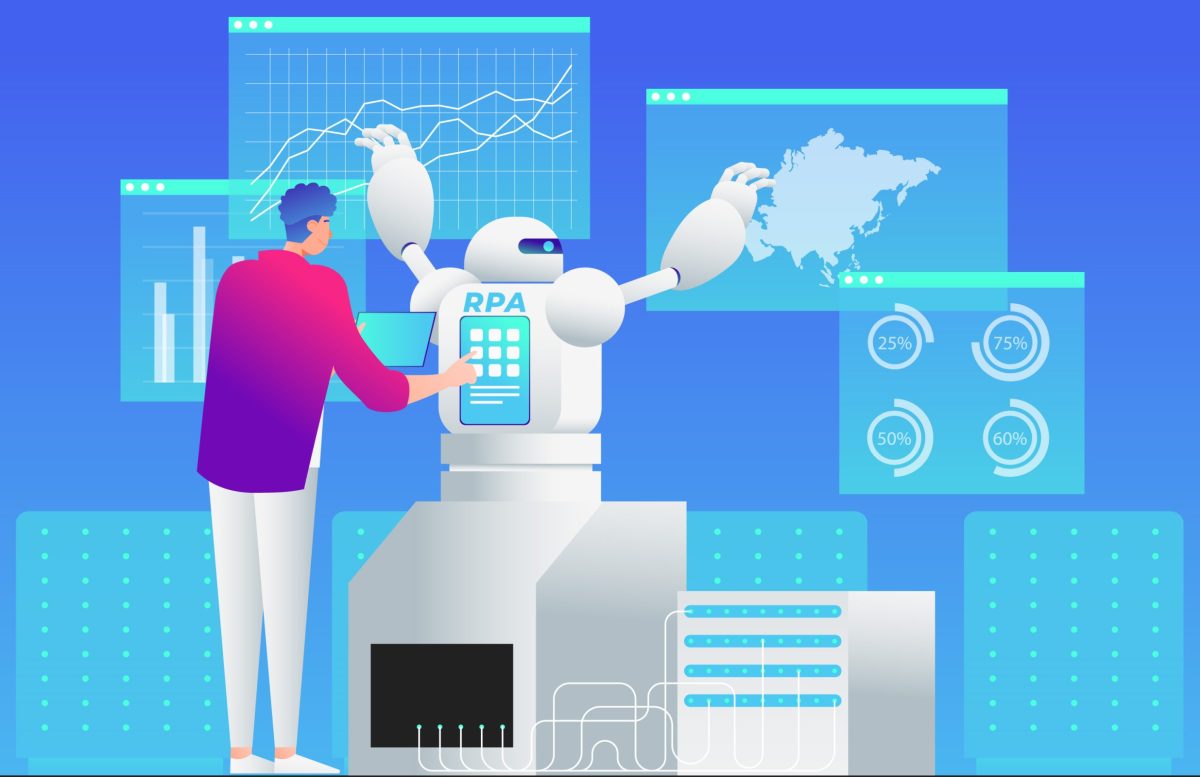In today’s fast-paced corporate environment, accuracy, compliance, and timeliness are critical in financial reporting. Traditional methods, though effective to an extent, are often bogged down by manual processes, human error, and slow data aggregation. As financial regulations evolve and data volumes increase, businesses are embracing AI in Financial Reporting to streamline their financial processes, improve decision-making, and reduce risk.
This blog explores what AI in Financial Reporting entails, its various applications, challenges businesses face without it, and how Stratpilot can offer strategic support for smarter financial management.
What is AI in Financial Reporting?
AI in Financial Reporting refers to the use of artificial intelligence technologies to automate, enhance, and analyse financial data and reporting processes. By leveraging machine learning algorithms, natural language processing (NLP), and data analytics, corporations can generate reports faster, ensure higher accuracy, identify anomalies, and meet compliance standards with ease.
AI learns from historical data, identifies patterns, predicts outcomes, and provides insights that support strategic financial decisions. For corporations managing vast financial portfolios or operating across global markets, AI adds agility, transparency, and control to financial operations.
Uses of AI in Financial Reporting
1. Automated Data Entry and Processing
AI systems can extract, sort, and input large volumes of financial data from multiple sources with high accuracy. This eliminates manual data entry errors and frees up finance teams for more strategic work.
2. Real-Time Financial Analysis
AI tools continuously analyse financial transactions and provide real-time insights into profitability, cash flow, and expenditure trends. This supports faster and more informed decision-making.
3. Anomaly Detection and Fraud Prevention
Machine learning models can flag unusual transactions or discrepancies that may indicate fraud or errors. By spotting anomalies early, businesses reduce the risk of financial loss and ensure regulatory compliance.
4. Forecasting and Budgeting
Using historical data, AI can create predictive models to assist in budgeting and forecasting. It helps CFOs and finance teams anticipate future financial trends and adjust strategies accordingly.
5. Regulatory Compliance and Audit Support
AI helps ensure that financial statements are aligned with the latest regulations and standards (like IFRS or GAAP). It also automates audit trails and document classification, making audits more transparent and less time-consuming.
6. Natural Language Processing for Narrative Reports
AI can generate narrative reports that explain financial performance in plain language. This helps stakeholders, especially non-financial executives, understand financial outcomes more easily.
7. Tax Calculation and Filing
AI-driven platforms simplify tax calculation, track changes in tax laws, and ensure accurate filing. This reduces the risk of non-compliance and associated penalties.
8. Financial Consolidation Across Entities
For multinational corporations, AI helps consolidate financial reports across different subsidiaries, currencies, and reporting standards with minimal manual input.
Risks of Not Using AI in Financial Reporting
1. Human Error and Inconsistencies
Manual data entry and spreadsheet-based processes are prone to mistakes. A small oversight can result in significant discrepancies or compliance violations.
2. Time-Consuming Reporting Cycles
Without AI, financial teams may spend weeks preparing quarterly or annual reports. This delays decision-making and reduces responsiveness to market changes.
3. Limited Visibility and Insight
Traditional reporting methods often focus on historical data, offering little foresight into future trends. Without AI-driven forecasting, strategic planning becomes more reactive than proactive.
4. Increased Risk of Non-Compliance
As financial regulations evolve, it becomes harder for teams to keep up. Lack of automation can result in misalignment with reporting standards and increased audit risks.
5. Higher Operational Costs
Corporations must invest in larger teams and extended working hours to meet reporting deadlines. This inflates operational costs without necessarily improving output quality.
How Stratpilot Supports AI-Driven Financial Reporting
Stratpilot is a next-generation AI assistant designed to enhance productivity and intelligence across business operations, including financial management. With powerful AI templates, pre-trained workflows, and data analysis capabilities, Stratpilot helps corporations adopt AI in Financial Reporting without complex integrations or extensive setup.
Whether you’re handling month-end closures, creating audit trails, or generating financial performance summaries, Stratpilot delivers actionable insights. It also supports financial forecasting with contextual recommendations tailored to your data trends, empowering CFOs to make informed strategic decisions.
Stratpilot doesn’t just digitise your financial reporting; it transforms it into a strategic advantage. With its intuitive interface and scalable features, finance teams can focus on value-added work while ensuring accuracy, transparency, and compliance.
Ready to modernise your financial operations and drive efficiency with AI? Book a demo for Stratpilot today and explore how intelligent tools can elevate your financial reporting processes. Stratpilot provides everything you need to build a future-proof finance strategy, faster, smarter, and with confidence.
Frequently Asked Questions (FAQs)
Q1: How can AI improve financial forecasting accuracy?
AI uses historical data and real-time trends to create dynamic predictive models. These models adapt to new inputs, resulting in more accurate forecasting and budgeting compared to static spreadsheets.
Q2: Is AI in financial reporting suitable for mid-sized companies?
Yes. AI tools like Stratpilot are built to scale. Whether you’re a growing business or a large corporation, AI can enhance financial transparency.
Q3: How does AI help in audit preparation?
AI can maintain detailed audit trails. This reduces the preparation time and ensures you meet compliance standards.
Q4: What kind of data security does Stratpilot offer for financial data?
Stratpilot uses enterprise-grade encryption, secure data access controls, and compliance-focused architecture to protect sensitive financial information at every level.
Q5: Can Stratpilot be integrated with existing ERP or accounting systems?
While Stratpilot works independently, its flexible APIs and export capabilities allow it to complement your current ERP or accounting platforms for seamless data handling.







